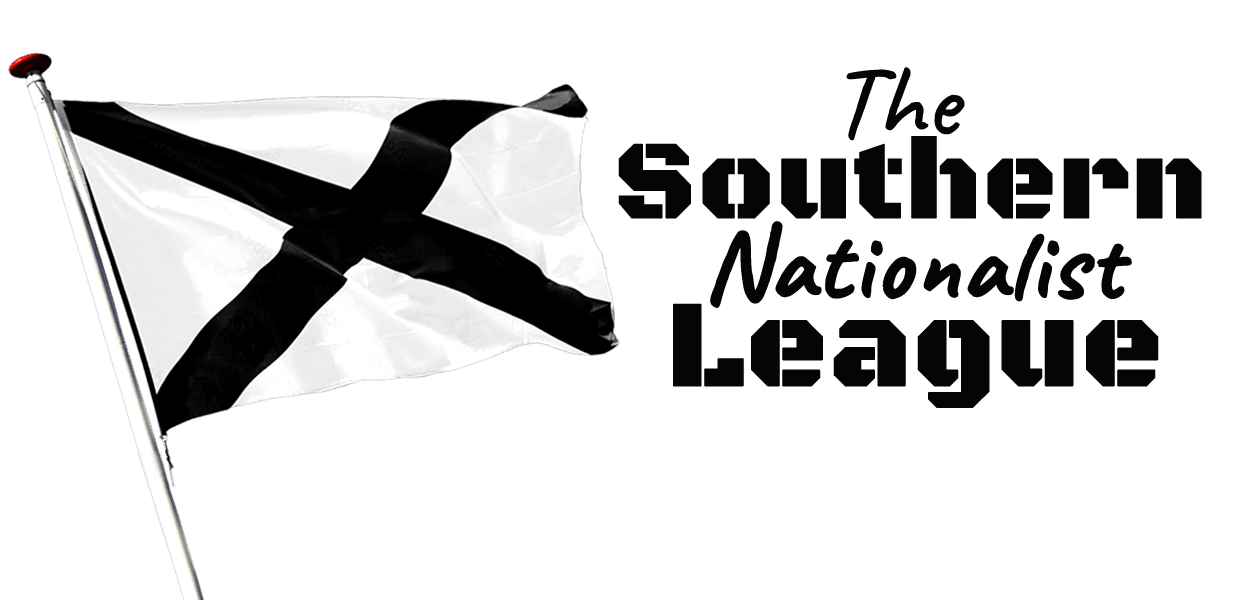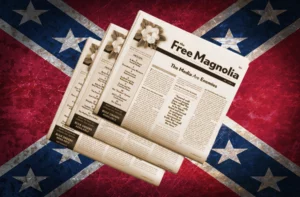The American South (and indeed all of North America) was settled and civilized largely by Christian folk from Western Europe. In particular, these settlers came mainly from the British Isles and brought with them the language, religion, culture, and institutions that gave the South its historical character. When the descendants of these settlers decided to break from Great Britain in 1776 and then form a constitutional federal republic in 1788, they did these things for themselves and their posterity. They saw themselves as a God-ordained and distinct people living on a land given them by Providence. At no time during the period from 1607 to 1863 did our folk, or apparently anyone else, believe that they were living in a “proposition nation.”
Historian Frank L. Owsley (one of the Twelve Southerners who contributed to I’ll Take My Stand) wrote in his seminal work, Plain Folk of the Old South (1949): “The term ‘folk’ has for its primary meaning a group of kindred people, forming a tribe or nation [in the true sense of the term]; a people bound together by ties of race, language, religion, custom, tradition, and history. . . . A folk thus possesses a sense of solidarity and is quite different from a conglomerate mass of people. It has most if not all of the characteristics of nationalism [again, properly defined]. Indeed, it may be contended with much force that there can be no true nationalism where the population does not constitute a folk.” Owsley contends that the “Southern people, according to these several characteristics, were a genuine folk long before the Civil War [sic].” Moreover, he tells us that the “greatest single factor, perhaps, in developing the Southern population into a genuine American folk was the common national origin of the bulk of the people. . . . [T]he Southern people prior to 1860 were predominantly British. . . . Appearance, the indefinable qualities of personality, and their manners and customs, particularly their distinctive speech, set them apart from the inhabitants of the other sections of the United States, and in this way strengthened their sense of kinship. [pp.90-91].”
Clearly, then, if the Southern people have for generations constituted a true “blood and soil” folk, or a distinct people group, why have they bought into the revolutionary and historically-flawed notion that they live in (and ought to support) a “proposition nation,” a polity that stands diametrically opposed to Owsley’s above definition? Where did the idea of America as a “proposition nation” originate?
It should come as no surprise that it all started with old Abe Lincoln himself. In his “Gettysburg Address” (19 November 1863), the Old Railsplitter wrote these familiar words: “Four score and seven years ago our fathers brought forth on this continent, a new nation, conceived in Liberty, and dedicated to the proposition that all men are created equal.” This is worse than bad history; it is an outright lie, and Lincoln surely knew it. But he was a Jacobin revolutionary who destroyed nearly all of what the Founders created, and undoubtedly the worst–and most corrosive–idea he propagated was that a mere proposition lay at the foundation of our republic. With one single line the blood, sweat, and tears of several previous generations of Americans had been rendered meaningless. Kith and kin, place, and a cultural tradition had been sacrificed on the altar of a new abstract ideological construct.
Henceforth, one could be “an American” if he simply believed in certain liberal democratic propositions, the main one being that “all men are created equal.” Of course, Mr. Jefferson had meant, in that particular case, that Englishmen in America ought to be on an equal footing with Englishmen in England. Nothing more, and certainly not racial equality. But Lincoln took Jefferson’s unfortunate dictum, twisted it to his own ends, and the rest is history. And because of America’s worship of the god of equality, we very well might end up in history’s proverbial dustbin.
Michael Hill


